I’m a bit behind in posting the second part of my Books of 2019 (Non-fiction) but I’m sure you’ll let me off – it was a considerably happier than usual first week back in January with the announcement of my new novel Scent. Again, many thanks to all who sent good wishes – the response was amazing, more than I could have hoped for.
Before I started this blog 8 years ago I never used to read non-fiction but now it – and memoir in particular – forms such an important aspect of my reading that I needed a separate non-fic post to do justice to the books I enjoyed last year, some of which were published before 2019. Two years ago I made a conscious decision not to let new releases dictate my reading, which has been very liberating and led to some great discoveries I might have missed.
Non-fiction used to have a stuffy image but a look around any bookshop will confirm that the selection these days is incredible, with wide appeal – the rest of my family read it almost exclusively so it’s nice to occasionally be able to discuss a book with them. The other advantage is that whilst fiction doesn’t work for me at all on audio, listening to authors narrate their own life stories holds my attention much better and really adds something. Top marks to Kerry Hudson and Alan Cumming and their beautiful Scottish voices for proving the point amid the titles below.
Family memoirs aren’t the only non-fiction I read but they certainly dominated last year in number and quality, and for me the best fall into two (purely subjective) groups:
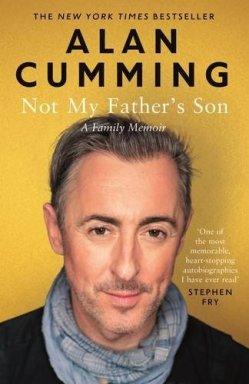
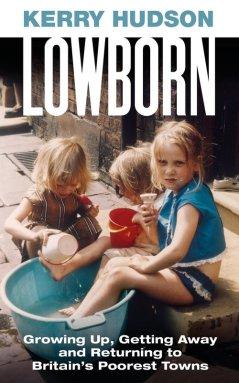
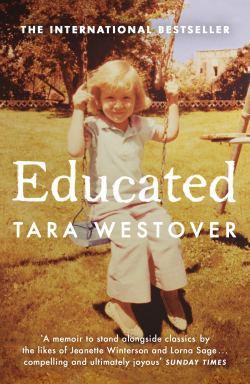
I don’t want to go overboard with ‘human spirit’ clichés, but for a memoir to be published, there has to be a reason why strangers would want to read it and it’s often true stories of overcoming adversity which make the cut. Whilst very moving and ultimately uplifting, these three memoirs involving parental abuse and/or extreme poverty (the latter shamefully on the increase in this, the fifth richest country in the world) were often harrowing – I’m sure most of us find awful things happening to children very hard to stomach – and yet the adults who emerged from these ordeals found the courage to write about it and achieve great things. Kerry Hudson’s searingly honest and eye-opening Lowborn has done very well but as always with potentially agenda-changing books, the challenge is engaging people not already concerned about the issues they highlight (punitive benefits system, class stigma, inequality of opportunity). If I had my way, every MP would be obliged to read this and do something about it.
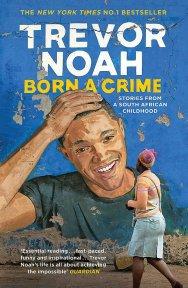
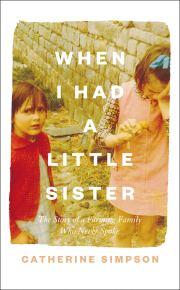
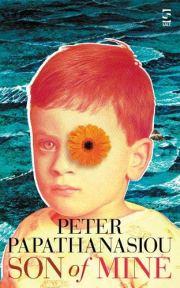
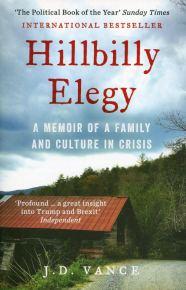
These next four books also relate lives with significant challenges but I found the tone lighter/warmer. Comedian and broadcaster Trevor Noah’s Born a Crime (to a black mother and white father in Apartheid South Africa) is one of the very few books all four of us in my family have read, let alone enjoyed. We all love and are fascinated by the country and Noah’s tales of getting by in Soweto township in a minority of one were both revealing and entertaining.
Catherine Simpson’s memoir When I had a little sister, about growing up in an ‘ordinary’ Lancashire farming family and losing her younger sister to suicide as an adult touched me in many ways. It’s a compassionate acknowledgement of the suffering of those with serious mental health issues and the often unspoken strain this puts on those around them. I am still struck by the perceptiveness of Catherine’s observation on the difficulty of mourning a difficult relationship.
Greek-Australian Peter Papathanasiou is a friend of mine and I was delighted that 2019 saw the story of discovering his international adoption in his 20s reach readers with Son of Mine. Whilst the circumstances were highly unusual, Pete has a lot to say about family bonds that is universal, his professional expertise as a geneticist lends a different angle and I found it a much needed ‘antidote to toxic masculinity’ – that was my literary soundbite of the year and I stand by it!
Finally, J D Vance’s Hillbilly Elegy is a kind of American cousin of Lowborn, an exposé of growing up in the impoverished and marginalised rural communities of West Virginia. I am fascinated by the USA and its dramatic contrasts of all kinds, having been there many times. Like Tara Westover’s Educated, about her childhood in a Mormon fundamentalist family in Idaho, these books allow a glimpse of lives far from the preconceptions most of us have of that country – I imagine this is just as true for many Americans reading them.
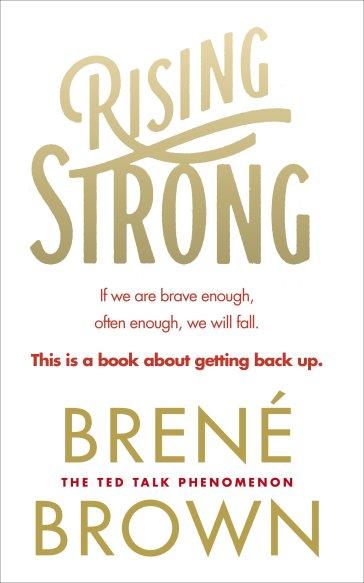
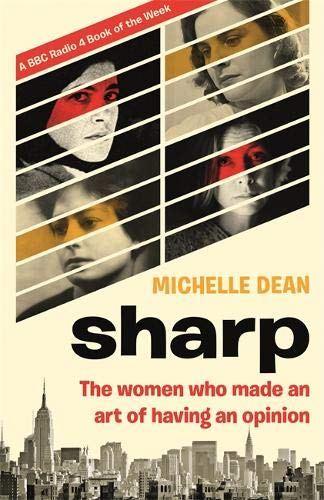
These last two books represent types of non-fiction I actually read regularly and plan to include more on my 2020 TBR: self-help/popular psychology and biographies of writers and artists. I discovered Brené Brown in the context of the Resilience for Writers project I co-founded with Voula Tsoflias, who was already a huge fan. There is so much in this book about ‘getting back up’ which resonates with the ethos of our Resilient Thinking workshops, which teach writers to think differently about the setbacks we all encounter, although I recommend it to anyone. Brown’s take on disregarding criticism from people who aren’t ‘in the arena’ or who you don’t respect is particularly good advice for creative people who tend to be sensitive/hard on themselves. As someone who’s spent as much time on the floor of the metaphorical arena as upright, I know that getting the words down and putting them out there, whether to agents, publishers or readers, involves courage and vulnerability – and that alone is something to be proud of. Brown has done some great TED talks and I plan to read her other books.
Michelle Dean’s collective biopic of 20th century female cultural influencers includes Joan Didion, Nora Ephron and Susan Sontag; it’s articulate, well researched and draws parallels between ten inspiring women with ideas, opinions and the guts to come out with them despite resistance and discrimination from the male-dominated cultural establishment. Brimming with atmosphere and big personalities (who didn’t always get along), this was an absorbing and entertaining feminist read and one you can choose to dip into – another thing I like about non-fiction is not having to worry about losing the thread.
If you read non-fiction, whether memoir or other kinds, I’d love to hear your recommendations.
*POSTSCRIPT*
As I am very behind on work following the personal upheaval of the final months of last year, I’ll be running the Sofa on an ‘as and when’ for a while in the run-up to my Spring Sofa Spotlight. This is likely to include some informal reading round-ups.

